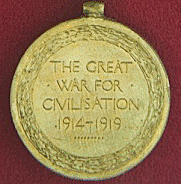Oral History Recordings
The University of Victoria Special Collections Military Oral History Collection is composed of over 700 interviews of veterans of WWI, WWII, the Korean War and the War in Afghanistan. Below are previews of selected oral history interviews held by the University of Victoria Special Collections.
Online access to interviews in their entirety is now available.

Arthur Corker discusses the trenches of the Western Front.
Source: Oral History Courtesy of University of Victoria Special Collections.

Arthur Corker describes the rations that he and other Canadian soldiers ate while serving on the Western Front.
Source: Oral History Courtesy of University of Victoria Special Collections.

Arthur Corker describes his attitude during his time as a prisoner of war, efforts to resist his German captors and the small acts of sabotage that he and other prisoners of war committed while working in the camps.
Source: Oral History Courtesy of University of Victoria Special Collections.

Arthur Corker describes how, after six attempts, he finally managed to escape the Germans.
Source: Oral History Courtesy of University of Victoria Special Collections.

James McKenzie describes the training he received in Victoria before shipping off for overseas service with the CAMC.
Source: Oral History Courtesy of University of Victoria Special Collections.

James McKenzie discusses the use of ether (an anaesthetic) and iodine (an antiseptic) during the war.
Source: Oral History Courtesy of University of Victoria Special Collections.

Thomas Baxter describes the horrors of the Western Front, and one of the “miracles” he experienced while serving.
Source: Oral History Courtesy of University of Victoria Special Collections.